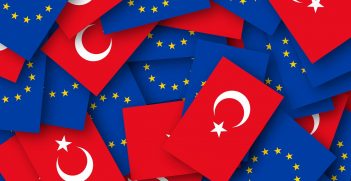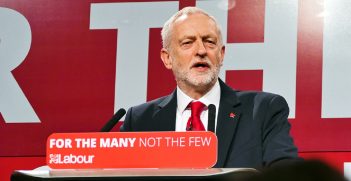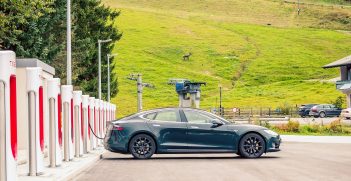Australia in the World: Episode 40

Australia’s response to the coronavirus, the UK allowing Huawei technology within its borders, potential WTO reforms and potential EU-UK trade deals.
Allan and Darren begin this episode with Australia’s response to the novel coronavirus, including the government’s efforts to evacuate Australians from Wuhan, the decision not to charge evacuees, and the decision to the bar entry into Australia of foreigners who have been in or travelled through China. Darren then wonders whether the variation across countries in the response to the virus—notably the hostility of Cambodia’s Prime Minister to wearing masks—is connected to China’s influence.
Next up is the UK’s decision to allow Huawei to participate in the country’s 5G network. Given Australia came to the opposite position, Allan grapples with the fact that he knows and trusts the judgments of individuals involved with both decisions. Darren asks whether there is much precedent for the inventions by four Australian MPs into the UK debate, or the recent piece by former Australian Signals Directorate senior official Simeon Gilding expressing disappointment with the UK’s decision. What’s the path forward now for Australia? Allan and Darren do not entirely agree.
The discussion moves to trade. Now that the Trump administration has neutered the World Trade Organisation’s appellate body by blocking the appointment of new judges, what’s next for the WTO? One interesting possibility is the creation of parallel appellate structures that essentially replicate the WTO model and allow willing countries (including Australia) to prop up the WTO system while a more permanent set of reforms can (hopefully) be negotiated. Finally, Darren asks Allan about bilateral free trade agreements between Australia and both the UK and EU that are on the agenda for 2020.
As always, we invite our listeners to email us at this address: australia.world.pod@gmail.com We welcome feedback, requests and suggestions. You can also contact Darren on twitter @limdarrenj
Thanks to AIIA intern Isabel Hancock for research and audio editing, and Rory Stenning for composing our theme music.
Relevant links
Jane Norman, “Coronavirus evacuees avoid $1,000 charge for flight from China after Federal Government backs down”, ABC News, 2 February 2020: https://www.abc.net.au/news/2020-02-02/government-blames-dfat-for-coronavirus-charge-mix-up/11921846
Hannah Beach, “Quieter response to coronavirus in countries where China holds sway”. New York Times, 2 February 2020: https://www.nytimes.com/2020/02/02/world/asia/china-coronavirus-philippines-thailand.html
Latika Bourke, “Four Australian MPs urge Britain to ban Huawei”, Sydney Morning Herald, 24 January 2020: https://www.smh.com.au/world/europe/four-australian-mps-urge-britain-to-ban-huawei-20200124-p53u9x.html
Simeon Gilding, “5G choices: a pivotal moment in world affairs”, ASPI Strategist, 28 January: https://www.aspistrategist.org.au/5g-choices-a-pivotal-moment-in-world-affairs/
Andrew Tillett and Hans van Leeuwen, “Australian warning over Trump’s WTO bear hug”, Australian Financial Review, 24 January 2020: https://www.afr.com/politics/federal/australian-warning-over-trump-s-wto-bear-hug-20200123-p53u4h
Ivan Krastev and Stephen Holmes, The light that failed: A reckoning, https://www.penguin.co.uk/books/308/308740/the-light-that-failed/9780241345702.html
Scholar’s Stage, “Public intellectuals have short shelf lives—But why?”, 29 January 2020: https://scholars-stage.blogspot.com/2020/01/why-public-intellectuals-have-short.html
Tyler Cowen, “How public intellectuals can extend their shelf lives”, 6 February 2020: https://marginalrevolution.com/marginalrevolution/2020/02/how-public-intellectuals-can-extend-their-shelf-lives.html
Kristen Roupenian, “Cat person”, The New Yorker, 4 December 2017: https://www.newyorker.com/magazine/2017/12/11/cat-person





